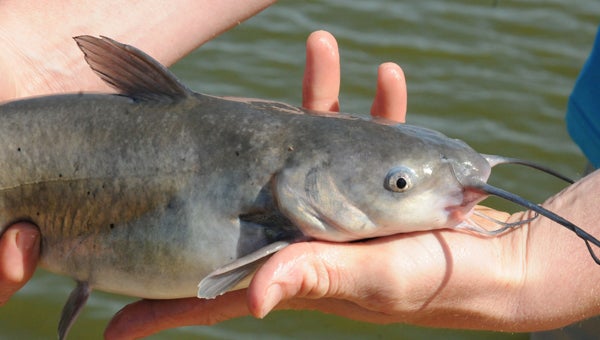Sen. Sessions applauds new catfish review
Published 10:27 pm Tuesday, April 8, 2014

fishy finding: Will Pearce hold a catfish produced on his farm in Dallas County in this 2013 photo. (File Photo | Times Journal)
The U.S. Commerce Department will continue turning to Bangladesh to determine prices on imported Vietnamese catfish.
Each year, the commerce department conducts administrative reviews to judge pricing on imports. Results of this year’s eighth administrative review, upheld Bangladesh as a surrogate country for Vietnam, who exports millions of tons in catfish to the United States every year. A surrogate country is necessary for Vietnam because its economy is government controlled.
In a statement, U.S. Sen. Jeff Session, R-Ala., praised the decision.
“Before this surrogacy was established, Vietnam was able to skirt the rules of fair trade and underprice its goods, resulting in enormous harm to the U.S. catfish industry,” Sessions said. “Much more needs to be done to ensure our workers in Alabama can compete on a level playing field, but this is a move in the right direction.”
Sessions was one of seven southern senators to urge the commerce department to choose Bangladesh in a March letter.
The letter expressed concern about the effect of cheaply imported catfish.
Nearly 6,000 jobs in Alabama are directly related to the catfish industry, which generates $158 million for the Alabama economy. Many of the catfish producers are based in the Black Belt.
Regardless of the surrogate selection, local farmers say foreign imports remain polluted.
“It’s just a cheap product coming in,” said Will Pearce, a catfish farmer. “Many of the imported fish contain harmful chemicals that we haven’t been able to use [in America] for 20-plus years. With all the legislation, we are just trying to get a level playing field.”
On average, foreign fish costs one dollar per pound less than domestic catfish, according to Pearce. Some restaurants choose foreign catfish and sell them at the same price as domestically produced fish, Pearce said.





